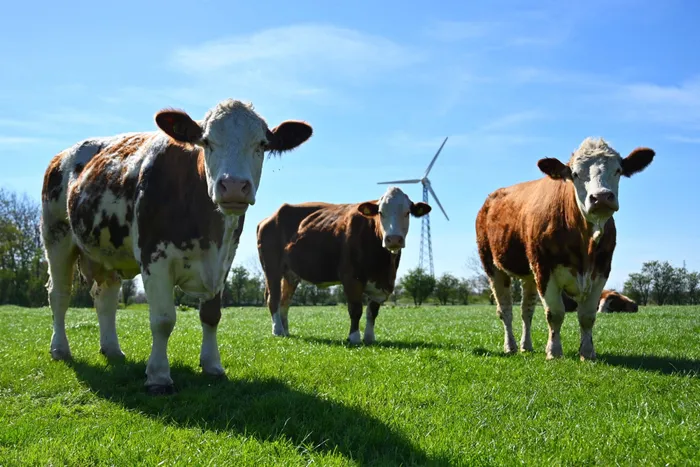Government intensifies cattle vaccination drive to combat Foot and Mouth Disease
AGRICULTURE

The Department of Agriculture continues to step up vaccination efforts in the fight against Foot and Mouth disease
Image: GAPON / AFP
The Department of Agriculture said on Wednesday that it was continuing to step up vaccination efforts in the fight against Foot and Mouth Disease (FMD).
Minister of Agriculture, John Steenhuisen, joined by North West MEC for Agriculture and Rural Development, Madoda Sambatha, led a targeted cattle vaccination drive in Rysmierbult recently.
Steenhuisen warned of the serious consequences if the outbreak is not contained.
“FMD is not just a veterinary issue, it is an economic threat. If left unmanaged, it can destabilize rural livelihoods, and undermine national food security. We must act swiftly and collectively,” he said.
Steenhuisen's visit formed part of the government's broader strategy to manage livestock disease outbreaks and protect the agricultural sector.
Before the vaccination rollout, Steenhuisen and Sambatha met with local farmers, livestock owners, and community leaders to hear their concerns and provide updates on control measures, biosecurity protocols, and the importance of early detection.
During the first phase of the campaign, close to 300 communal cattle were inoculated by veterinary teams deployed to the area. The intervention aims to preserve livestock health, strengthen food security, and protect the rural economy from the damaging effects of FMD.
Steenhuisen said all stakeholders, farmers, officials, and communities must work together in reporting symptoms, adhering to containment protocols, and supporting vaccination efforts.
Meanwhile, Sambatha urged farmers to report any unusual symptoms immediately, adding that cooperation with State officials was critical to stopping the spread of the disease.
According to the department, several farmers welcomed the initiative and committed to working with government representatives to ensure the safety of their herds and communities.
“Farmers should look out for signs that may show their cattle have Foot-and-Mouth Disease. These include animals drooling more than usual, having sores or blisters in their mouths or on their feet, limping or refusing to walk, and eating less than normal. Some cows may also produce less milk or seem tired and uncomfortable.”
The department said if farmers notice any of these symptoms, they should report them to veterinary officials immediately.
“Acting quickly can help stop the disease from spreading and protect other animals in the area,” it said.
The department said that it was committed to supporting affected areas with resources, technical expertise, and surveillance, and continued to coordinate efforts with national and provincial partners to ensure a unified response.
Dewald Olivier, CEO of Red Meat Industry Services, stated that vaccination against FMD is a vital tool for protecting the health and productivity of the national herd, as well as securing market access and maintaining trade confidence.
“Just as important is strict adherence to Disaster Management Area (DMA) movement protocols. Uncontrolled movement of cattle can rapidly spread FMD and undo all efforts to contain the disease. Both vaccination and movement control must be treated as non-negotiable in our fight against the spread of FMD,” Olivier said.
Dr Frikkie Maré, CEO of the National Red Meat Producers’ Organisation (RPO), said FMD did not kill animals, but it economically cut the throats of producers as they lose their markets.
“We must remember two important things. Firstly, producers’ revenue, in many cases, is limited to one or two payments per year. Secondly, the total gross margin of producers varies year to year," he said.
Maré said this meant that the timing of when a producer was placed under quarantine was critical.
“When a producer is placed under quarantine just before weaning, he basically loses his income for that year,” he said.
“This happened in KZN where the DMA was expanded just before the onset of weaning, and those farmers are still sitting with their calves, without income, while they are taken to court for outstanding bills.”
Mare said there was an ongoing perception that FMD was spread by irresponsible producers not following regulations.
"I cannot deny it, but I can also say that irresponsible parties in the rest of the value chain, as well as in government institutions, are also to blame. We cannot ensure that regulations are followed by every role player in the value chain; it is in vain."
BUSINESS REPORT